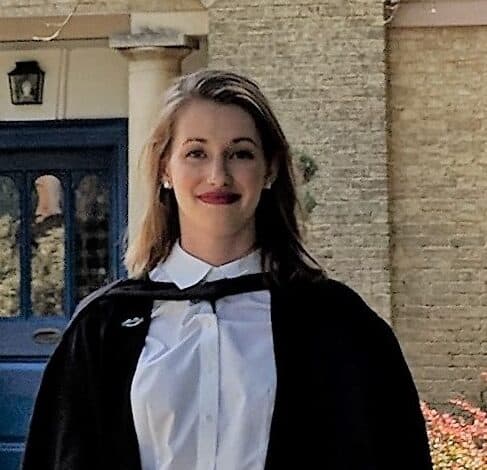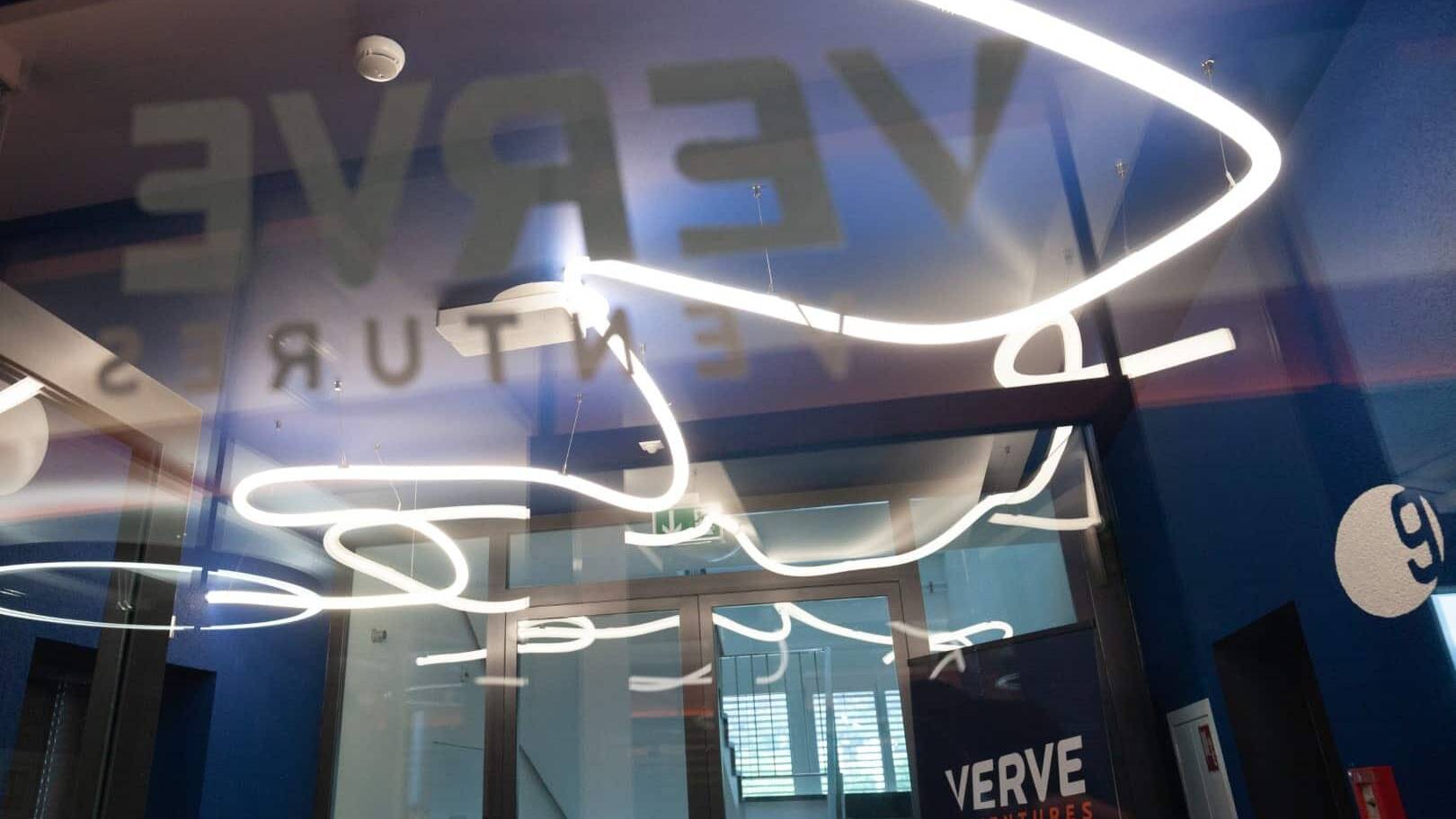Verve Ventures is proud to announce the launch of its first Venture Fellowship Program with the Cambridge University Venture Capital and Private Equity Society (CUVCPES). In this interview, the Society’s chairwoman, Shelby Newsad, and President, Michelle Parker, talk about their interest in venture capital and explain the program’s goal.

Chairwoman of CUVCPES
Shelby Newsad is Chairwoman of CUVCPES. She is a PhD candidate in Plant Sciences and fields due diligence questions for those participating in the Venture Promoter Program at Cambridge’s healthcare and life sciences accelerator, Start Codon.

President of CUVCPES
Michelle Parker is President of CUVCPES. She is a PhD candidate in Mathematical Genomics and Medicine and project lead of the Venture Promoter Program in collaboration with Start Codon. She previously worked at Wellcome Trust Sanger Institute.
What is the Cambridge University Venture Capital and Private Equity Society’s goal?
Shelby: The Society has been around for more than 4 years now and its main goal historically was to facilitate knowledge exchange through speaker events. These talks with people from the industry sometimes attract up to 200 people. We still do talks but have now shifted the focus towards experiential learning, by teaming up with venture capital firms. There are around 50 students that had/are having first-hand VC experience at the moment through due diligence projects and the Venture Fellowship Program with Verve Ventures.
Michelle: Since becoming President, my goal has been to expand the reach of the society and form collaborations with both VCs and other societies. We have successfully launched this new initiative with Verve Ventures and have more collaborations in the pipeline. In terms of our events, I have pushed forward the impact investing agenda by collaborating with the Social Impact & Sustainability Society so expect to see a few more impact investing events. Our Society is free for all members. We mainly connect to our members via social media such as Facebook, where we have over 2000 followers, LinkedIn and Instagram.
“For students interested in venture capital, the program provides students with hands-on experience.”
Last week, Verve Ventures and CUVCPES announced the launch of their joint Venture Fellowship Program. How does it work?
Michelle: For students interested in venture capital, the program provides students with hands-on experience by giving them a fantastic opportunity to work together with Investment Managers from Verve Ventures. They will gain experience in sourcing and assessing startups across the world. They receive access to Verve’s proprietary deal board software to collaborate with Verve’ analysts. We’ve received almost 50 applications for the 15 fellowships from a broad range of students, mostly in Biotech, but also Engineering and Computer Science. Since Verve has a broad investment scope, this matches the diversity of the student’s backgrounds quite well.
What do you think a venture capital firm like Verve can learn from scientists and these involved students specifically?
Shelby: I see this very much as a two-way exchange where dedicated scientists can contribute to new investment theses at Verve and students can gain hands-on experience in VC. The students come from a spectrum of academic disciplines and can use their curiosity and scientific expertise to make sound recommendations. Biological science is particularly vocational, with a high level of initial knowledge required which these students have already attained.
What is your background and what do you find fascinating about your studies?
Michelle: Although a mathematics graduate, I have always been fascinated by biology and sustainability. As a PhD candidate in mathematical genomics, I work in the intersection between biology, statistics, and computer science. The study of humans and their relationship with the environment has always been a fascinating topic to me. I currently study human expansion and adaptation to past climate. The rapid growth of our species sets us apart from other animals, and the question of how it will continue has major implications for society.
Shelby: I did my undergraduate in Biochemistry (minor in Engineering) at Ohio State University and later worked for the National Institutes of Health in Ela Serpe’s Lab before I started my PhD in Plant Sciences with Alison Smith. The topic of my studies centers around algae and trying to characterise their interactions with mutualistic bacteria. A lot of knowledge has been gained around plant-bacterial symbioses in recent years and led to the foundations of companies like Pivot Bio, where bacteria are used as nitrogen fertilisers. Some of the symbiotic components are conserved from plants to algae and gives us hope that the same strides of knowledge could be made in algal research to be eventually used as food or a tool for bioremediation. After my PhD, I’m keen to become a VC and invest in the next-generation of sustainability and plant science companies.
With this scientific background, why are you interested in venture capital?
Michelle: I’m a problem solver at heart, and I’d like to apply my background in science and mathematics to tackle the big problems that we face, such as climate change. Sustainability is a key concern for me. I could see myself as an entrepreneur and starting a business myself, or on the investor side as a VC, with the ambition of raising my own fund one day.
Shelby: I love the convergence of the endless exposure to scientific ideas and the possibility to invest in technologies to improve the future. As a proud generalist (research experience in drug development and repurposing, glutamate receptor surface trafficking in the brain, and now algal-bacterial interactions), I’m especially suited to broad remit funds. This broad knowledge has proven useful during my brief stints in venture capital although I have a soft spot for sustainable plant science innovations. Maybe the UK can position itself with more flexibility in the use of genetically modified crops after Brexit. It’s an interesting bellwether that Ottoline Leyser, Professor of Plant Development at Cambridge University, now leads UK Research and Innovation (UKRI).
You’re two women scientists eager to break into venture capital. What is that like?
Shelby: Getting into VC is nebulous, no matter your gender. I’ve been fortunate enough to be surrounded by strong, clever women in the VC Society and in my experiences in VC. At Ahren Innovation Capital, my direct supervisor was Joanna Green, a great scientific and business mind, and the Managing Director/Fund Founder, Alice Newcombe-Ellis, a brilliant investor.
Michelle: Women are still very much underrepresented in finance as a whole, even though there is evidence they make better investors! Like Shelby, I have been lucky enough to be surrounded by ambitious women in this space, so I have yet to experience how this may affect my career moving forward.
As potential future VCs, what are examples of companies that you’re really interested in?
Shelby: Swiftscale Biologics is a startup that provides cell-free protein synthesis. Right now we mostly use bacteria or yeast to manufacture compounds and therapeutics, but this approach has major drawbacks, such as sustainability, product toxicity and purification, and non-universal expression systems. The cell-free approach, as pioneered by Swiftscale, might be able to circumvent all these challenges whilst allowing for post-translational modifications, something 70% of biologics need. I’m also quite fascinated with Verve’s portfolio firm Nagi Biosciences. Their organism-on-a-chip technology seems to be a cost-effective and sustainable alternative to animal testing of toxic substances.
One Cambridge start up I think is quite interesting is Better Origin, which aims to reduce food waste. They have developed smart insect mini-farms to transform organic waste into food for chickens and fish. I think insect driven solutions which close the food waste loop have great potential for moving towards a circular economy. From Verve’s portfolio, ecoRobotix’s solar-powered weed killer sounds like an excellent solution to reduce the use of pesticides on crops.
Written by
WITH US, YOU CANCO-INVEST IN DEEP TECH STARTUPS

Verve's investor network
With annual investments of EUR 60-70 mio, we belong to the top 10% most active startup investors in Europe. We therefore get you into competitive financing rounds alongside other world-class venture capital funds.
We empower you to build your individual portfolio.
More News
26.09.2019
Shaping the Digital Future of Venture Capital
Steffen Wagner, co-founder of Verve Ventures, has just been named digital shaper 2019 by Le Temps and BILANZ. Verve Ventures is increasingly recognized as a role model of how the venture capital industry is transforming. In this article, he sets out in four points how Verve Ventures has built a highly scalable digital venture capital platform - and how technology helps looking for startups, making investments available for a wider investor base, and manage the post-investment phase.
Startups,Innovation andVenture Capital
Sign up to receive our weekly newsletter and learn about investing in technologies that are changing the world.


